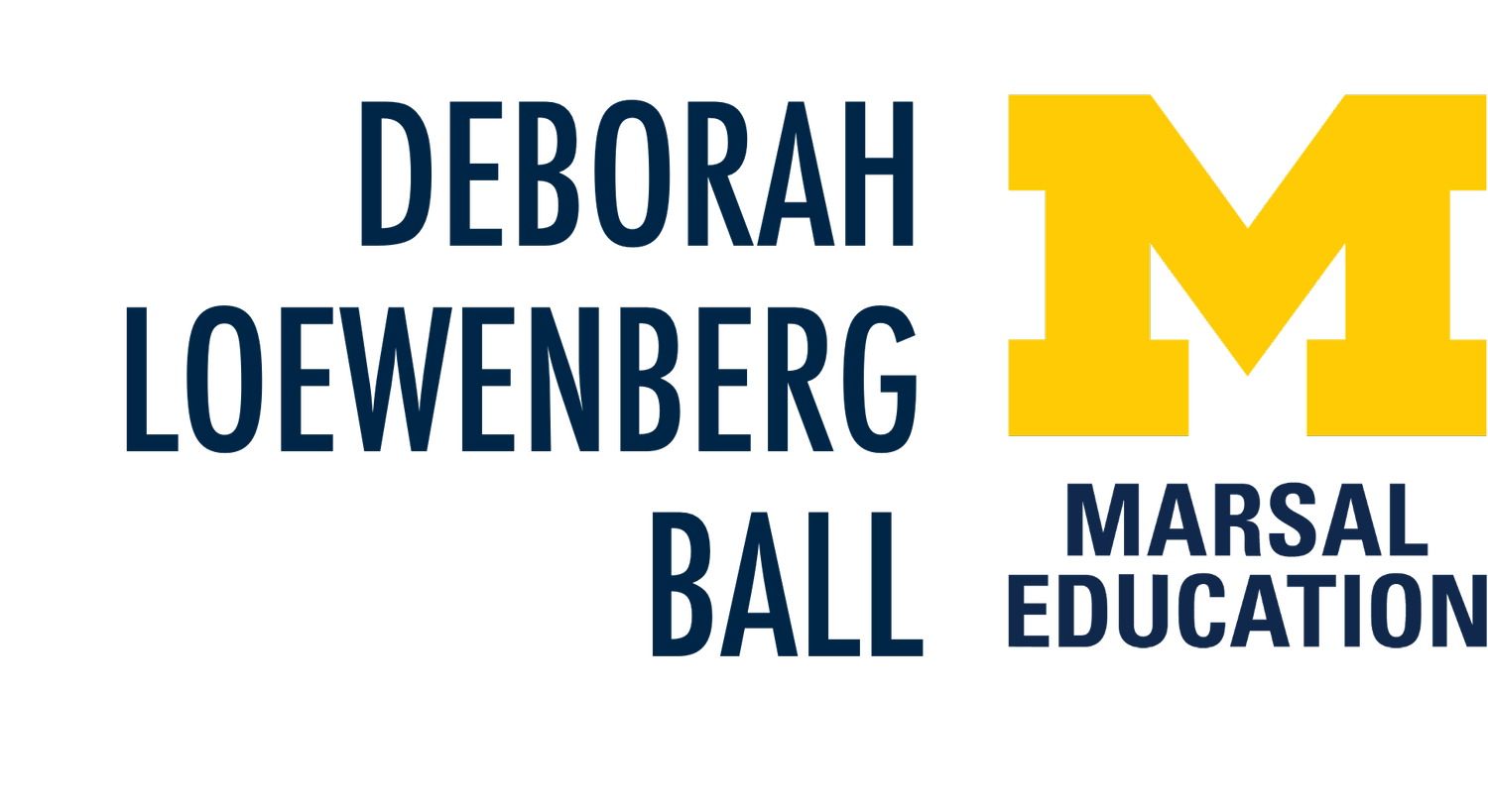This summer, as part of the TeachingWorks Virtual Summer Institute, Deborah Loewenberg Ball and Darrius Robinson, doctoral student and experienced mathematics teacher and coach, will lead a virtual laboratory class on elementary mathematics. Drawing from video of past Elementary Mathematics Laboratories (EMLs), this class will explore the teaching and learning of complex elementary mathematics—fractions (definitions, representations, placement on the number line), as well as reading, interpreting, and solving equations—and practices and techniques that include explaining, representing, proving complex claims, presenting in public, and listening to others’ mathematical ideas attentively, respectfully, and critically. This lab class, which runs July 20–24, is structured to make it possible for educators, policymakers, and education advocates to engage directly in the close study of teaching practice in elementary mathematics. The program will provide participants with opportunities to delve into the complexity of teaching, explore and challenge what it means to use skillful teaching practice to disrupt injustice, and develop specific professional skills.
In preparation for each day, workshop attendees will view selected videos from previous EMLs; videos will be posted in advance and viewed asynchronously. Ball and Robinson will then host a synchronous session each day during which participants will meet virtually to debrief the videos, ask questions, and review student work before attending virtual professional learning workshops in the afternoon.
This year, the lab class will be part of the TeachingWorks Virtual Summer Institute, which runs from July 20 to August 5, 2020. “I am excited for the virtual laboratory class to reside within this larger context that supports teachers and teacher educators as they build vision and skill to advance justice in their classrooms,” Ball said. The institute is composed of three strands: virtual K-12 laboratory classes and professional learning workshops, virtual teacher educator and teacher leader professional learning workshops, and a virtual practice-based teacher education workshop. Each strand will provide participants with opportunities to focus on practice and how it can advance justice and equity. Some workshops will focus on the complexities of teaching and learning, while others will center on the practices of teacher education, professional development, and school leadership that support teachers’ development through a focus on high-leverage practices and practice-based teacher education pedagogies. Participants will gain practical strategies, tangible resources, and hands-on experience in using teaching to disrupt patterns of injustice and exclusion in classrooms or in online environments. Participants may choose to participate in one, two, or all three strands of the summer institute.
For more information and to register, please visit the TeachingWorks website.
